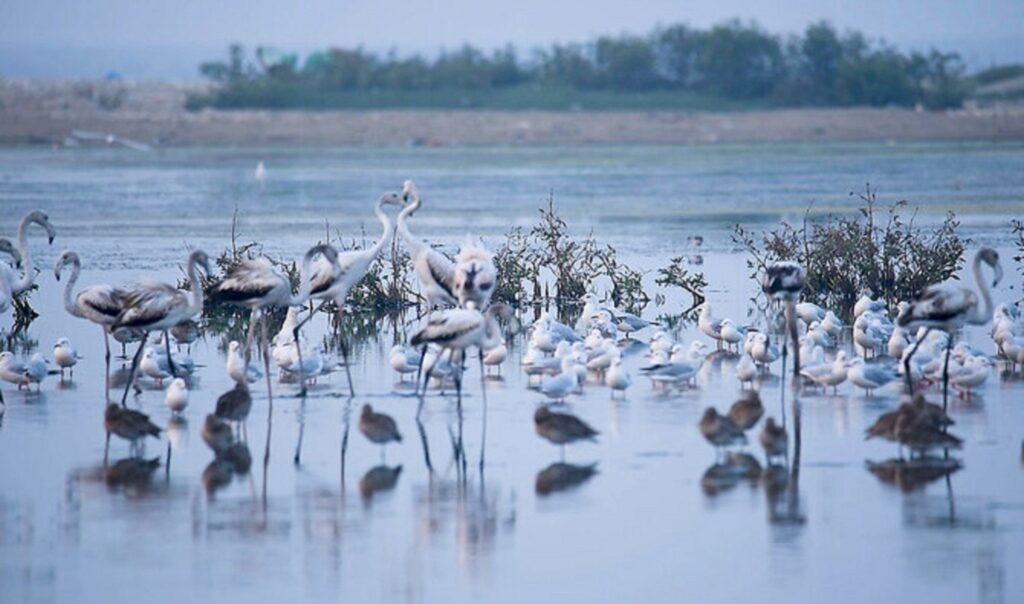Karachi:
Pakistan’s wetlands are facing severe degradation due to water stress, untreated industrial waste, land recovery and agricultural runoff, shrunk their organic value and threatening biodiversity, warned WWF-Pakistan in a statement released on World Wetlands Day 2025.
The organization warned that species such as Indus River Dolphin, Freshwater Turtles and Migrant Birds were at severe risk due to the continuous destruction of wetland ecosystems.
WWF-Pakistan called for immediate preservation and restoration efforts emphasized that wetlands served as lifelines for biodiversity, local communities and sustainable development.
Pakistan is home to more than 240 significant wetlands covering an estimated 10% of the country’s land area. These wetlands offer support for livelihood to local communities and provide important ecosystem services, including water filtration, carbon storage, flood control and habitats for countless species, including migrant birds and commercially important fish.
However, these fragile ecosystems are under severe threat due to water scarcity, pollution, intervention, unregulated development, climate change and unsustainable resource extraction, warned the statement.
Muhammad Jamshed Iqbal Chaudhry, Senior Manager for Research and Conservation in WWF-Pakistan, noted that wetlands are a lifeline for millions of Pakistanis, especially communities that depend on fishing, agriculture and tourism.
The Ramsar-listed wetlands in Pakistan, such as Keenjhar Lake, Haleji Lake, Chashma Barrage and Jiwani coastal wetlands, are critical breeding and feeding reasons for migrant birds, including white-headed ducks, flamingos, cranes and the critically threatened Sibiric crane.
Wetlands also act as nature’s buffer against climate change, absorbs excess flooding water and reduces the effect of extreme weather events. “Conservation wetlands are therefore not only an environmentally imperative, but a social and economic necessity,” he urged.
WWF-Pakistan is actively working to preserve and restore wetlands through various initiatives, including the implementation of community-based conservation projects in the Indus Delta, Punjab’s wetlands and Balochistan’s coastal ecosystems. The initiatives, including water resource responsibility in Pakistan (WRAP) and Recharge Pakistan (RP), demonstrate the use of nature -based solutions (NBS) to tackle the challenges of wetlands.



